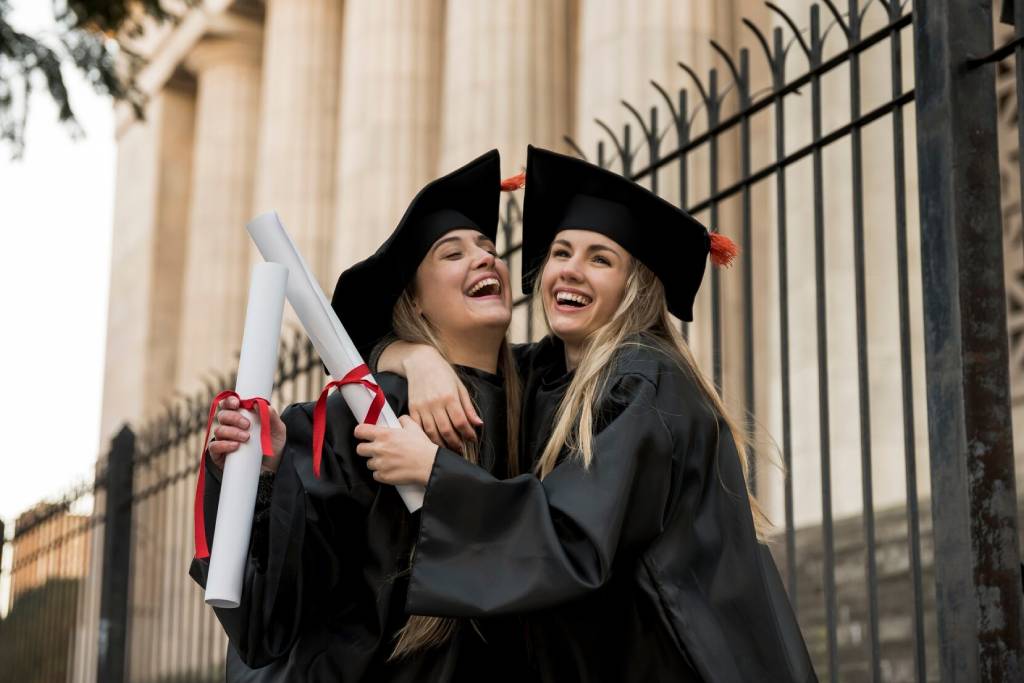In the quiet corners of dusty archives and lecture halls, there lies an art—a craft that transcends the boundaries of time and space. It’s the art of history education, where narratives are meticulously crafted, and the power to shape perspectives is bestowed upon those who delve into the intricate tapestry of the past.
The Intricate Tapestry of History Narratives
As we embark on this journey, envision the unfolding narratives, connecting moments long gone to the threads of our present and the canvas of our future. A history education is not merely about memorizing dates and events; it’s about understanding the nuances, motivations, and intricacies that breathe life into the stories of our ancestors.
Understanding the Foundations
Historical Methodologies: Unveiling Truths
The journey begins with the foundational stones of historical methodologies. It’s the art of unveiling truths, peeling back the layers of time to reveal the essence of moments frozen in history. The historian’s toolkit includes critical analysis, source evaluation, and a relentless pursuit of accuracy.
Imagine standing at the threshold of an ancient manuscript, its pages whispering secrets of a bygone era. The historian’s pen becomes a bridge between past and present, ensuring that the narrative reflects not just the facts, but the heartbeat of history.
Core Courses: Foundations of Historical Understanding
Beyond the methodology lies the heart of a history education—core courses that lay the groundwork for a comprehensive understanding. It’s not merely about names and dates; it’s about understanding the socio-political, cultural, and economic contexts that breathed life into historical events.
In these courses, students aren’t passive recipients of information; they’re active participants in unraveling the intricate dance of historical forces. The classroom becomes a dynamic space where ideas clash, perspectives evolve, and history becomes a living, breathing entity.
Beyond the Classroom: Experiential Learning
Internships: Immersive Time Travel
The power of a history education extends beyond textbooks through experiential learning. Internships are akin to stepping into a time machine, offering a hands-on journey into historical archives. It’s not just about learning; it’s about living history.
Feel the weight of a centuries-old document in your hands—the ink smudges, the parchment’s texture. It’s a tangible connection to the past, a visceral understanding that transcends the theoretical realm of academia.
Study Abroad: Global Perspectives
The narratives crafted in history classrooms are not confined by borders. Studying history abroad is a passport to global perspectives. It’s an immersive experience that broadens horizons, offering insights into diverse cultures, revolutions, and historical epochs.
Picture yourself in the hustle of a bustling market in a foreign land. The language might be unfamiliar, but the echoes of history are universal. It’s an invitation to witness history unfold beyond the boundaries of one’s cultural lens.
Career Paths for History Graduates
Historical Research and Academia: Shaping Discourse
 For some, the journey with a history education extends to the hallowed halls of academia. The pursuit of advanced studies and research becomes a transformative endeavor. It’s about contributing to the academic narrative, shaping historical discourse, and becoming a custodian of knowledge.
For some, the journey with a history education extends to the hallowed halls of academia. The pursuit of advanced studies and research becomes a transformative endeavor. It’s about contributing to the academic narrative, shaping historical discourse, and becoming a custodian of knowledge.
Imagine the thrill of uncovering a forgotten manuscript, shedding light on a facet of history lost in the shadows. The journey becomes a quest for understanding, and each research paper becomes a beacon illuminating unexplored corners of our shared past.
Museum and Archival Careers: Curating the Past
Others find their calling as stewards of history in museums and archives. The power to preserve and present historical artifacts becomes a sacred duty. Curating exhibits is not merely arranging artifacts; it’s about telling stories that resonate through time.
Walk through the dimly lit corridors of a museum, where every artifact whispers tales of bygone eras. The curator is a storyteller, carefully selecting artifacts to craft narratives that captivate, educate, and inspire.
Media and Journalism: Storytelling Influence
The journey with a history education is not confined to academia; it spills into the realm of media and journalism. History graduates become architects of narratives that influence public discourse. It’s not just reporting facts; it’s shaping the collective memory of a society.
In the fast-paced world of journalism, a history graduate is a storyteller with a deep understanding of context. Every article becomes a brushstroke on the canvas of public awareness, contributing to the ongoing narrative of our shared history.
Real-world Impact: History in Contemporary Society
Advocacy and Social Change: A Call to Action
The power of history education is not confined to the dusty pages of textbooks; it’s a force for advocacy and social change. Armed with historical knowledge, graduates become advocates for positive societal transformations.
Step into the shoes of a history advocate, passionately unraveling the stories of marginalized voices in history. It’s not just about acknowledging past injustices; it’s about actively working towards a more equitable future.
Business and Corporate Settings: Analytical Influence
The unexpected relevance of history extends to the dynamic world of business. History graduates bring analytical skills and a nuanced understanding of human behavior, contributing to informed decision-making, strategic planning, and a deeper understanding of industry dynamics.
In a boardroom, where decisions shape the trajectory of a company, a history graduate is the voice reminding colleagues that every decision has a historical context. It’s about using the past as a guide to navigate the complexities of the present.
Challenges and Opportunities in the Field of History
Navigating Challenges in Research: Unveiling Complexities
The journey of historical research is not without its challenges. Navigating access to information, addressing biases, and confronting ethical considerations become part of the historian’s resilience and adaptability.
Feel the frustration of hitting dead ends in research, the elation of discovering a hidden gem in an obscure archive. The challenges become the warp and weft of the historian’s tapestry, weaving a narrative that acknowledges the complexities of the past.
Digital History: Innovations and Opportunities
In the digital age, history adapts and embraces technological advancements. Digital history becomes a powerful tool, offering new opportunities and challenges. It’s not just about flipping through virtual pages; it’s about innovating and preserving history in the digital realm.
Imagine scrolling through a digital archive, where history is not confined to dusty shelves but is accessible with a click. The digital historian becomes an architect of the future, preserving the past in a medium that transcends physical constraints.
Reflections: Personal and Professional Growth
Critical Thinking and Analytical Skills: Molding Thinkers
The power of a history education extends beyond the classroom, molding individuals into critical thinkers. The analytical skills acquired become invaluable assets in navigating the challenges of varied professional landscapes.
Think back to the moments of epiphany in a history class—the realization that every historical event is a puzzle piece in a larger narrative. The critical thinker is born, questioning, analyzing, and navigating the complexities of the human experience.
Cultural Competence: Understanding Diverse Narratives
A history education becomes a journey into diverse cultures and perspectives, fostering cultural competence. It’s about challenging stereotypes, embracing diversity, and contributing to a society that values and respects the richness of different narratives.
Picture the empathy cultivated by walking in the shoes of historical figures from different cultural backgrounds. The history graduate becomes a bridge between worlds, fostering understanding and breaking down cultural barriers.
Alumni Stories: Journeys Beyond Graduation
Success Stories of History Graduates: Inspiring Paths
The impact of history education is most vividly illustrated in the success stories of graduates. Each journey is a testament to the versatility and enduring influence of a history degree.
Walk alongside successful history graduates as they share their odysseys. From boardrooms to classrooms, from museums to research labs, each graduate is a living testament to the myriad paths carved by a history education.
Conclusion
The Enduring Power of a History Education
As we conclude this journey, reflect on the enduring power of a history education. It’s not just a degree; it’s a key to unlocking the mysteries of the past, a tool for shaping the narratives of the present, and a compass for navigating the uncharted territories of the future.
Close your eyes and envision the ripple effect of history education—an ever-expanding circle of influence touching lives, shaping perspectives, and leaving an indelible mark on the collective consciousness. The power of history education is not just in what it teaches but in how it transforms.
Call to Action
If you’re standing at the crossroads of academic choices, consider the power of a history education. It’s not just a journey through time; it’s a transformative odyssey that crafts narratives, influences societies, and shapes the world. Embark on this journey, and let the power of history unfold before you.
Frequently Asked Questions for Crafting Narratives: The Art and Power of a History Education
1. What makes a history education powerful?
A history education is powerful because it goes beyond memorizing facts; it’s about understanding the complexities, motivations, and cultural nuances that shape historical events. It equips individuals with critical thinking skills and the ability to craft narratives that resonate across time.
2. How do historical methodologies contribute to the power of history education?
Historical methodologies, including critical analysis and source evaluation, are the tools that historians use to unveil truths. They ensure that the narratives crafted are not just accurate but also reflect the essence of moments frozen in history.
3. What is the significance of experiential learning, such as internships, in history education?
Internships provide hands-on experiences in historical archives, offering a tangible connection to the past. They transform theoretical knowledge into lived experiences, fostering a deeper appreciation for history beyond the confines of a classroom.
4. How does studying history abroad contribute to global perspectives?
Studying history abroad broadens horizons by offering insights into diverse cultures, revolutions, and historical epochs. It provides a global understanding, breaking down cultural barriers and offering a more comprehensive worldview.
5. What are the diverse career paths for history graduates?
History graduates can pursue careers in historical research and academia, museum and archival settings, media and journalism, advocacy, and even business. The analytical skills acquired make them versatile professionals in various fields.
6. How does a history education contribute to advocacy and social change?
Armed with historical knowledge, graduates become advocates for positive societal transformations. They use history to shed light on past injustices and actively work towards creating a more equitable future.
7. In what ways do history graduates contribute to business and corporate settings?
History graduates bring analytical skills and a nuanced understanding of human behavior to business settings. They contribute to informed decision-making, strategic planning, and a deeper understanding of industry dynamics.
8. What challenges do historians face in their research, and how do they overcome them?
Historians often face challenges like access to information, biases in historical records, and ethical considerations. Overcoming these challenges requires resilience, adaptability, and a commitment to uncovering hidden truths.
9. How does digital history innovate and preserve historical narratives?
In the digital age, historians embrace technological advancements to innovate and preserve history. Digital history ensures accessibility and opens new opportunities for presenting and analyzing historical narratives.
10. How does a history education mold individuals into critical thinkers?
Critical thinking is cultivated through the analysis of historical events. Students learn to question, analyze, and navigate the complexities of the human experience, preparing them for varied professional landscapes.
11. What role does cultural competence play in history education?
A history education fosters cultural competence by exposing students to diverse narratives. It challenges stereotypes, embraces diversity and contributes to a society that values and respects different cultural perspectives.
12. How do alumni stories illustrate the impact of a history education?
Alumni stories showcase the versatility and enduring influence of a history degree. Graduates excel in diverse fields, from boardrooms to classrooms, museums to research labs, demonstrating the myriad paths carved by a history education.
13. Is a history education only for those interested in academia?
No, a history education opens doors to various career paths. Graduates can excel in academia, museums, media, business, advocacy, and more, showcasing the versatility of the degree in today’s dynamic job market.
14. How does history contribute to strategic decision-making in business?
History graduates bring a nuanced understanding of historical context to business strategy. Analyzing past events helps in making informed decisions, anticipating trends, and understanding the broader implications of business choices.
15. Can a history education be relevant in the digital age?
Absolutely. In the digital age, history adapts to technological advancements. Digital history and online archives ensure that historical narratives remain accessible and relevant in an era driven by technological innovation.
16. What emotional impact can studying history have on individuals?
Studying history can evoke a range of emotions—from empathy for historical figures facing adversity to the awe of discovering forgotten stories. It’s a journey that connects individuals emotionally to the human experience across time.
17. How do history graduates contribute to societal transformation through advocacy?
History graduates engage in advocacy by bringing attention to historical injustices. They use their knowledge to challenge existing narratives, promote inclusivity, and actively participate in creating a more just and equitable society.
18. Can a history education help break down cultural barriers?
Yes, a history education exposes individuals to diverse cultural narratives, fostering understanding and breaking down cultural barriers. It encourages empathy, appreciation for cultural differences, and a global perspective.
19. How do history graduates use storytelling in their careers?
Storytelling is a powerful tool for history graduates, whether they work in academia, media, or advocacy. They use narratives to engage audiences, shape discourse, and convey the richness and complexity of historical events.
20. Is a history education only for those interested in the distant past?
No, history education is relevant to understanding both the distant and recent past. It equips individuals with a broad historical perspective that can be applied to contemporary issues, making it valuable in understanding the present and shaping the future.



